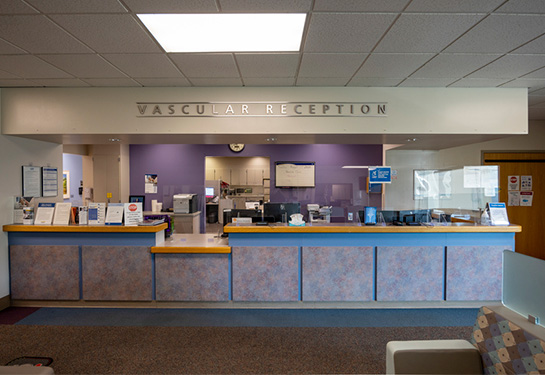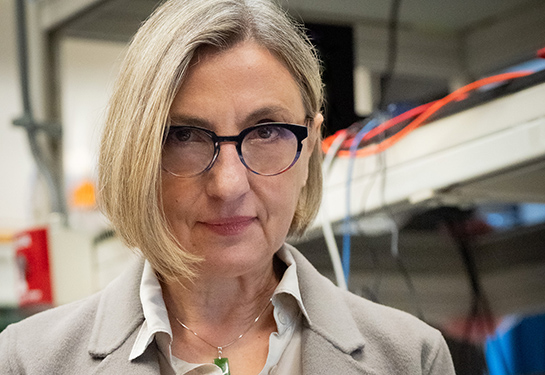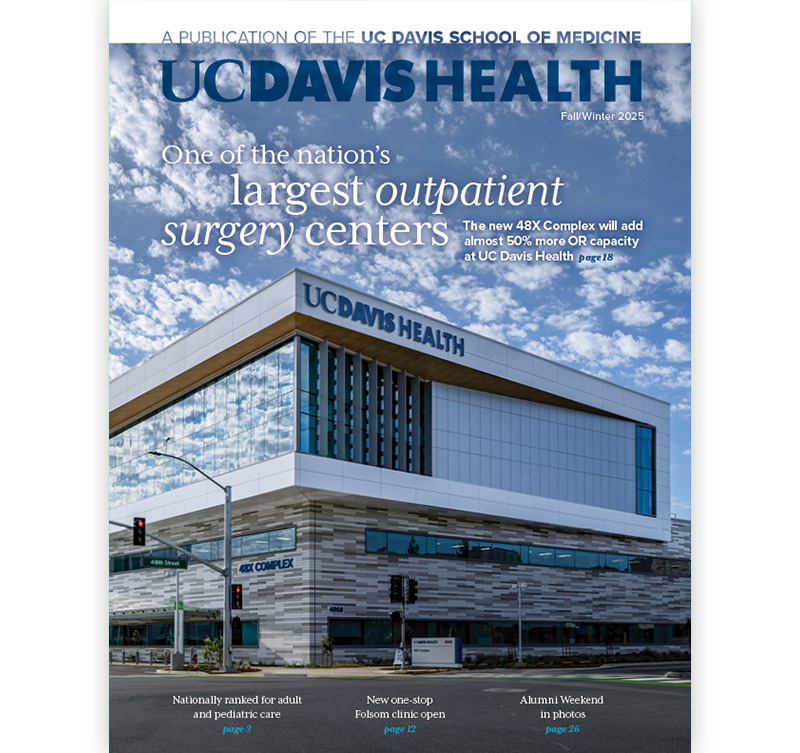UC Davis Health receives approval for new procedure to treat complex aortic aneurysms
Medical center is the first hospital in Sacramento authorized to perform minimally invasive treatment for thoracoabdominal aortic aneurysms
UC Davis Medical Center has become the first hospital in the Sacramento region authorized to perform a lifesaving, minimally invasive procedure to treat complex aortic aneurysms.
The procedure, known as a thoracoabdominal branch endoprosthesis, or TAMBE, provides an alternative to open-chest and abdomen surgery, which requires lengthy hospitalization.
UC Davis Health received U.S. Food and Drug Administration (FDA) authorization in June to use the TAMBE procedure, which treats thoracoabdominal aortic aneurysms (TAAA). The condition is a bulging or ballooning in the aorta that extends from the chest to the abdomen.
Untreated or unrecognized TAAA can be fatal due to dissection or “popping” of the aneurysm leading to nearly instant death. It is often one of the most complex aortic aneurysms to treat due to the complexity of its location.
Most people with a TAAA require open-chest and abdomen surgery to repair the aorta by replacing the aneurysmal section with a synthetic graft that is sewn into the aorta. This procedure requires stopping blood flow through the aorta while the graft is put into place. Patients who undergo this major surgery have long hospital stays, increased risk of infection, more scarring and extended recovery time.
“Performing traditional open procedures to treat TAAA comes with potential complications and complex and prolonged hospitalizations for patients,” said Melissa R. Keller, assistant professor of vascular surgery. “The TAMBE procedure offers a new option for patients in the Sacramento area and provides the benefits of a less invasive treatment option which can be performed with potentially lower rates of surgical complications, blood loss and death.”
The TAMBE procedure offers a new option for patients in the Sacramento area and provides the benefits of a less invasive treatment option which can be performed with potentially lower rates of surgical complications, blood loss and death.” —Melissa R. Keller
A minimally invasive endovascular repair
TAMBE is an implantable, branched endograft device. It has four built-in pre-cannulated internal portals to facilitate placement of bridging stent grafts into the visceral arteries perfusing the internal organs within the abdomen.
Surgeons implant the TAMBE by delivering the different parts into the aorta inserted through the femoral artery in the leg and the brachial or axillary artery in the upper arm.
The device and parts are implanted using fluoroscopy, or real-time X-ray images, and viewed on a monitor. The aortic part is inserted through the femoral artery and positioned with its top above and just beyond the aneurysm. It is then partially deployed.
Branch parts are inserted and deployed through the designed openings of the aortic part and into its corresponding visceral artery. After the aortic part is fully deployed, additional parts such as the distal bifurcated part and contralateral leg parts are inserted and deployed to complete aortic relining.
Once all parts are deployed, an endovascular balloon may be used to help full expanding and ultimately seal the device to the vessel walls.
“We are excited to offer the Sacramento community this novel treatment that offers fewer complications and a quicker recovery schedule,” said Misty D. Humphries, interim chief of vascular surgery. “Efforts like this are an example of how we are aiming to deliver optimal outcomes for our patients.”







